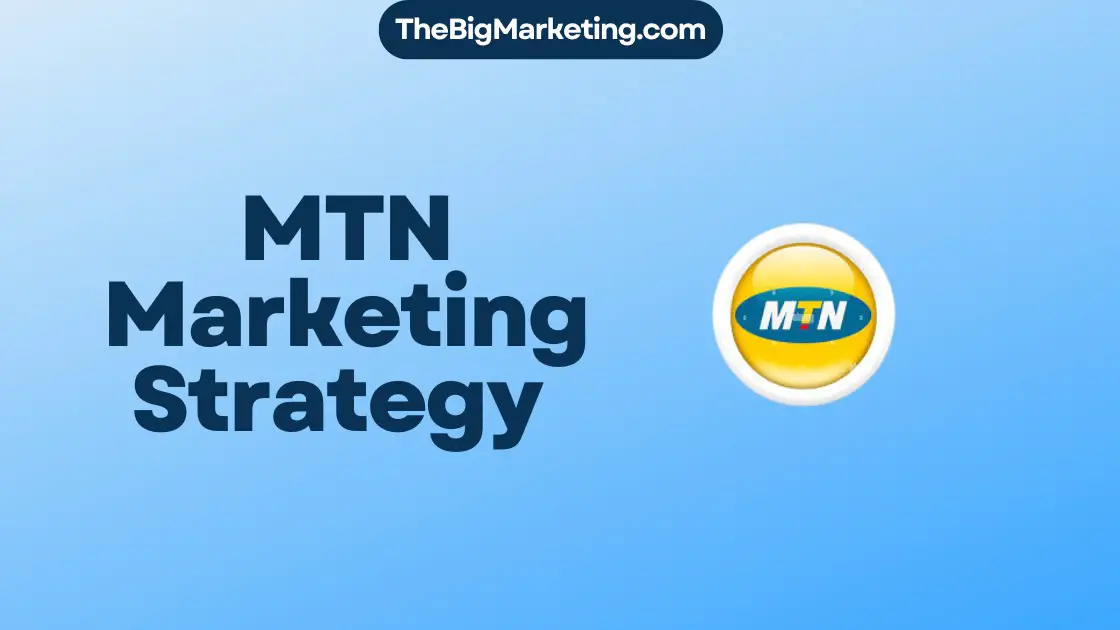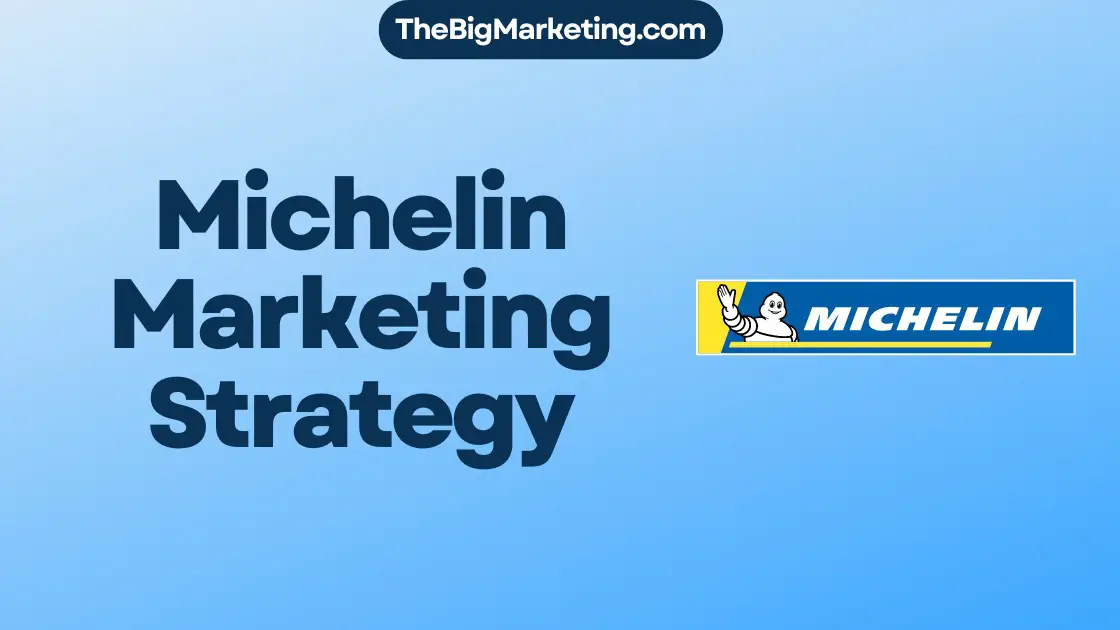In this guide, we will explore the importance of content marketing in digital marketing strategies. Content marketing is a powerful tool that allows businesses to attract, engage, and convert their target audience. By providing valuable and relevant content, businesses can establish their authority, build brand awareness, and drive customer loyalty.
To showcase the effectiveness and benefits of content marketing, we will provide insights from various reputable sources such as HubSpot, the Content Marketing Institute, and DemandScience. These insights will help you understand the impact of content marketing on your business and provide valuable guidance for creating a successful content marketing strategy in 2024.
This comprehensive guide will cover the basics of content marketing, including what it is and why it is important. We will delve into different types of content marketing, such as blog content marketing, social media content marketing, and video content marketing. Additionally, we will provide valuable tips and strategies to help you optimize your content marketing efforts and stay ahead in the fast-paced digital landscape of 2024.
Key Takeaways:
- A strong content marketing strategy is essential for businesses in 2024 to attract, engage, and convert their target audience.
- Insights from reputable sources such as HubSpot, the Content Marketing Institute, and DemandScience can help businesses understand the effectiveness and benefits of content marketing.
- Different types of content marketing, such as blog content marketing, social media content marketing, and video content marketing, offer unique opportunities to reach and connect with the target audience.
- Optimizing your content marketing efforts through effective strategies and staying updated with the latest trends will help you achieve digital success in 2024.
- By leveraging the power of content marketing, businesses can establish brand authority, build brand awareness, and drive customer loyalty.
What is Content Marketing?
Content marketing is a strategic approach that businesses use to attract leads through the creation and distribution of valuable written and visual materials. This form of marketing involves various types of content, including blog posts, ebooks, infographics, videos, and web pages. Unlike traditional outbound marketing strategies that interrupt the audience with intrusive ads, content marketing focuses on inbound marketing tactics that engage and resonate with the target audience.
A key element of content marketing is narrative storytelling. By infusing storytelling techniques into their content, businesses can create authentic and engaging materials that appeal to their audience. This approach allows businesses to establish a connection with their target audience and provide them with valuable information that addresses their needs and interests.
In today’s digital landscape, content marketing has become an essential component of a successful marketing strategy. By consistently producing high-quality content, businesses can attract leads, build brand awareness, and establish themselves as industry experts.
Why is Content Marketing Important?
Content marketing is a vital strategy for businesses in the digital age. It holds great significance due to several reasons, all of which contribute to the success and growth of a brand.
Modern Consumers Prefer Informational Content
In today’s digital landscape, modern consumers have evolved to prefer informational content over intrusive advertisements. Studies show that a staggering 70% of consumers prefer to learn about a product or service through articles rather than traditional advertising methods. This shift in consumer behavior highlights the importance of creating valuable and informative content that resonates with audiences.
A Cost-Effective Lead Generation Method
Content marketing is not only preferred by consumers, but it also proves to be a more cost-effective lead generation method compared to outbound marketing. It has been found that content marketing generates over three times more leads than traditional outbound marketing strategies while costing significantly less. This cost-efficiency makes content marketing an attractive option for businesses looking to maximize their return on investment.
Building Brand Awareness and Trust
Content marketing plays a crucial role in building brand awareness and establishing trust with the target audience. By consistently creating and sharing valuable content, businesses can increase their visibility and showcase their expertise in their industry. This, in turn, allows them to cultivate trust and credibility with their audience, positioning their brand as a leader in their field.
Establishing Brand Authority and Increasing Sales
Content marketing enables businesses to establish brand authority by providing useful, insightful, and educational content. This authority helps to differentiate the brand from competitors and positions them as an expert in their niche. By consistently delivering valuable content, businesses can attract and nurture leads, ultimately leading to an increase in sales and revenue.
| Benefits of Content Marketing |
|---|
| Increases brand awareness |
| Builds trust and credibility |
| Establishes brand authority |
| Generates more leads at a lower cost |
| Increases sales and revenue |
Content Marketing Statistics
Content marketing continues to be a popular marketing strategy, with 29% of companies utilizing it, according to HubSpot research. This section will explore various content marketing statistics and provide insights into emerging trends and challenges in the industry.
One significant trend in content marketing is the increasing use of short-form videos. In 2024, businesses are leveraging platforms like TikTok to create engaging video content that captures the attention of their target audience. Short-form videos have proven to be a powerful tool for brands to showcase their products or services in a visually appealing and concise format.
Another area where content marketing is evolving is the utilization of AI. Artificial intelligence is being employed for content creation, enabling businesses to automate processes and produce high-quality content. AI-powered tools can analyze data, understand trends, and generate personalized content to enhance the overall effectiveness of content marketing strategies.
Lead generation challenges are also an important aspect of content marketing. Businesses face various obstacles when it comes to acquiring leads, such as targeting the right audience, delivering valuable content, and nurturing prospects throughout the customer journey. Overcoming these challenges requires a strategic and data-driven approach.
Social selling has emerged as a powerful tactic within content marketing. By leveraging social media platforms and engaging with their audience, businesses can increase brand awareness, establish credibility, and generate leads. Social selling allows for a more personalized and interactive approach to marketing, creating meaningful connections with potential customers.
Experiential marketing is gaining traction as a way to engage and connect with the audience on a deeper level. By providing immersive and interactive experiences, businesses can leave a lasting impression and build brand loyalty. Experiential marketing draws on emotions and sensory elements to create memorable moments that resonate with consumers.
These content marketing statistics highlight the ever-evolving landscape of digital marketing. As businesses adapt to new trends, challenges, and technologies, it is essential to stay informed and incorporate data-driven strategies to achieve success in content marketing.
Types of Content Marketing
Content marketing has evolved to encompass a wide range of formats and strategies that cater to different platforms and target audience preferences. Businesses can leverage various types of content marketing to engage their audience and achieve their marketing goals. Here are some key types of content marketing:
1. Online Content Marketing
This type of content marketing focuses on creating valuable and informative content for online platforms. It includes blog posts, articles, whitepapers, and eBooks that attract and educate the target audience about the business or industry.
2. Social Media Content Marketing
Social media content marketing involves creating and sharing engaging content on social media platforms to build brand awareness, attract followers, and drive audience engagement. This includes posts, photos, videos, and interactive content tailored to each platform, such as Facebook, Instagram, Twitter, and LinkedIn.
3. Infographic Content Marketing
Infographic content marketing uses visually appealing and informative graphics to present complex information in a concise and engaging format. Infographics are highly shareable and can effectively communicate data, statistics, and key messages to the target audience.
4. Blog Content Marketing
Blog content marketing focuses on creating and publishing informative and valuable blog posts that cater to the target audience’s interests and needs. Blogs can help establish thought leadership, drive organic traffic to the website, and nurture leads through valuable and relevant content.
5. Podcast Content Marketing
Podcast content marketing involves creating audio content, typically in the form of episodes, that provides valuable information, insights, and entertainment to the target audience. Podcasts are an effective way to connect with listeners and build a loyal audience.
6. Video Content Marketing
Video content marketing utilizes videos to tell compelling stories, showcase products or services, and engage with the audience visually. It includes brand videos, explainer videos, tutorials, testimonials, and other forms of video content that resonate with the target audience.
7. Paid Ad Content Marketing
Paid ad content marketing involves promoting content through paid advertising channels such as Google Ads, social media ads, display ads, and sponsored content. It helps amplify the reach and visibility of content, targeting specific audience segments to drive conversions and achieve marketing objectives.
By employing a combination of these content marketing strategies, businesses can effectively engage their target audience, build brand authority, drive traffic, and generate leads.
Content Marketing and SEO
When it comes to driving organic traffic to a blog or website, content marketing and SEO are two essential components. SEO, or search engine optimization, plays a crucial role in ensuring that your content reaches a wider audience through organic search. By implementing SEO strategies such as targeted keyword research, creating high-quality content, and building reputable backlinks, businesses can improve their search engine rankings and attract more blog traffic.
Keyword research is a fundamental aspect of SEO, as it helps you identify the specific keywords and phrases that your target audience is searching for. By optimizing your content with these keywords, you increase its visibility in search engine results pages (SERPs), allowing your website to be indexed and ranked more effectively.
However, SEO extends beyond keyword research. It also involves creating high-quality content that provides value to your readers. Search engines prioritize websites and pages that offer unique and informative content, as it enhances the user experience. By focusing on producing high-quality content tailored to your audience’s needs and interests, you can attract more organic search traffic and increase your chances of getting indexed by search engines.
In addition to keyword research and high-quality content, backlinks are another crucial aspect of SEO. Backlinks are external links from other websites that point to your content. Search engines view backlinks as a vote of confidence and authority, as they indicate that other websites find your content valuable and worth sharing. By building a network of high-quality backlinks, you can improve your website’s reputation and search engine rankings.
Overall, content marketing and SEO work hand in hand to maximize your online visibility and reach. By implementing effective SEO strategies, conducting thorough keyword research, creating high-quality content, and building strong backlinks, you can drive more organic traffic to your blog or website, enhance your search engine rankings, and ultimately increase your online presence.
Blog Marketing Strategy
Blog marketing is a crucial component of a comprehensive content marketing strategy. By consistently creating and sharing valuable content through blog posts, businesses can attract and engage their target audience, driving organic traffic and generating leads. A well-executed blog marketing strategy not only establishes the business as an industry expert but also helps build trust and loyalty with the audience.
One of the key elements of a successful blog marketing strategy is the creation of valuable content. By offering insights, tips, and useful information in blog posts, businesses can provide value to their readers and establish themselves as a reliable source of information. Valuable content not only helps attract new readers but also encourages them to return for more, increasing the chances of lead generation and conversion.
SEO optimization is another crucial aspect of blog marketing. By conducting keyword research and strategically incorporating relevant keywords into the blog posts, businesses can improve their search engine ranking and drive more organic traffic to their website. This involves optimizing meta tags, headers, and content structure, as well as ensuring the website is mobile-friendly and has fast loading speeds.
Creating a content calendar is an essential part of an effective blog marketing strategy. By planning and organizing the topics, deadlines, and publishing schedule in advance, businesses can ensure a consistent flow of valuable content. A content calendar helps businesses stay organized, maintain a regular posting frequency, and keep their audience engaged, ultimately leading to better results in terms of reader engagement, lead generation, and conversions.
Lead generation is a primary goal of blog marketing. By using lead magnet strategies such as offering exclusive content, e-books, or free resources in exchange for contact information, businesses can capture leads and nurture them into customers. It’s important to strategically place call-to-action buttons and forms within the blog posts to encourage readers to take action.
In conclusion, blog marketing is a powerful strategy for businesses to attract organic traffic, establish their expertise, and generate leads. By consistently delivering valuable content, optimizing for SEO, utilizing a content calendar, and implementing lead generation tactics, businesses can achieve success in their blog marketing efforts.
Social Media Marketing Strategy
Social media marketing plays a crucial role in any comprehensive content marketing strategy. It provides businesses with the opportunity to build brand awareness and engage with their target audience on platforms where they spend a significant amount of their time. An effective social media marketing strategy involves careful platform selection, creation of engaging content, and staying updated with the latest trends.
Platform Selection
When creating a social media marketing strategy, it’s essential to identify the platforms that align with your target audience’s preferences and behaviors. Conduct market research and analyze demographic data to determine where your audience is most active. This will allow you to focus your efforts on platforms such as Facebook, Instagram, Twitter, or LinkedIn, ensuring maximum exposure to the right audience.
Audience Engagement
Building meaningful connections with your audience is key to a successful social media marketing strategy. By understanding your audience’s interests and pain points, you can create content that resonates with them. Encourage audience engagement through interactive posts, surveys, contests, and responding to comments and messages. This not only strengthens customer relationships but also helps generate valuable user-generated content.
Short-Form Video Content
One of the emerging trends in social media is the rise of short-form video content. Platforms like TikTok and Instagram Reels have become popular channels for businesses to engage with their audience through entertaining and informative videos. Incorporating short-form video content into your social media strategy can help boost brand visibility and increase audience engagement.
Brand Awareness
Creating brand awareness is another important aspect of social media marketing. By consistently sharing valuable content and showcasing your brand’s values and personality, you can establish a strong brand presence and enhance brand recognition. Implementing social media advertising campaigns can also help amplify your brand reach and visibility among your target audience.
| Benefits of an Effective Social Media Marketing Strategy |
|---|
| Increased brand awareness |
| Enhanced audience engagement |
| Opportunity for viral marketing |
| Targeted advertising options |
| Increased website traffic and lead generation |
| Valuable customer insights |
Implementing a well-planned social media marketing strategy can yield numerous benefits for your business. It not only helps increase brand awareness and audience engagement but also offers opportunities for viral marketing and targeted advertising. Moreover, by analyzing social media metrics and customer insights, you can gain valuable data to optimize your strategy and improve business results.
With the right approach, social media marketing can be a powerful tool for businesses to connect with their audience, build brand awareness, and drive business growth. By understanding your target audience, creating engaging content, and adapting to emerging trends like short-form video content, you can maximize your social media presence and effectively achieve your marketing goals.
Video Marketing Strategy
Video marketing has become an essential component of any successful digital marketing strategy. The power of video lies in its ability to engage audiences and convey messages in a visually compelling and impactful way. However, with the increasing competition in the digital landscape, businesses need to adapt their video marketing strategies to cut through the noise and capture viewers’ attention.
To effectively engage audiences, businesses must focus on creating compelling video content that resonates with their target audience. This can be achieved by understanding the needs, interests, and preferences of the target audience, and tailoring the videos accordingly. By catering to the specific interests and pain points of the audience, businesses can create videos that are highly relatable and valuable to the viewers.
Platform-Specific Content
Another important aspect of video marketing is creating platform-specific content. Different social media platforms have unique features and user behaviors, which require businesses to adapt their video content accordingly. For example, short and punchy videos perform well on platforms like TikTok, while longer and more informative videos may be better suited for YouTube.
By tailoring video content to each platform, businesses can maximize the reach and impact of their videos. This includes optimizing videos for different display sizes, utilizing captions or subtitles for platforms that automatically mute videos, and leveraging platform-specific features such as live streaming or interactive elements.
Visual appeal is also crucial in video marketing. As viewers have shorter attention spans, businesses need to create visually appealing and aesthetically pleasing videos that capture attention within the first few seconds. This can be achieved through engaging visuals, high-quality production, and impactful storytelling.
Storytelling is a powerful tool in video marketing as it helps businesses connect with their audience on an emotional level. Through storytelling, businesses can convey their brand message, showcase their unique value proposition, and create a lasting impact on viewers.
In conclusion, video marketing is an essential strategy for businesses looking to engage their audience in a visually compelling way. By creating compelling, platform-specific, visually appealing, and storytelling-driven videos, businesses can effectively capture viewers’ attention and drive engagement with their brand.
Content Personalization Strategy
Content personalization is a powerful strategy that involves tailoring content and messaging to individual users based on their preferences and behaviors. By understanding user preferences, businesses can deliver targeted content that provides a personalized experience and resonates with each individual user.
One of the key elements of content personalization is utilizing data-driven tools and AI-powered algorithms to analyze user data. These tools provide valuable insights into user behaviors, interests, and preferences, allowing businesses to create highly targeted and relevant content that meets the specific needs of their audience.
Targeted content ensures that users receive information that is most relevant to them, increasing engagement, trust, and brand loyalty. By delivering personalized content, businesses can establish a deeper connection with their audience and provide a tailored experience that sets them apart from the competition.
Through content personalization, businesses can also optimize their marketing efforts based on user data. By analyzing user behaviors and preferences, companies can refine their content strategy, identify areas for improvement, and make data-driven decisions to improve the overall effectiveness of their marketing campaigns.
A personalized experience not only benefits customers but also enhances business outcomes. Studies have shown that content personalization leads to higher conversion rates, increased customer satisfaction, and improved overall marketing performance.
In summary, content personalization is a crucial strategy for businesses looking to deliver targeted content, cater to user preferences, and provide a personalized experience. With the help of data-driven tools and AI-powered algorithms, businesses can create highly engaging and relevant content that resonates with their audience, leading to better outcomes and stronger relationships.
Data-driven Content Marketing Strategy
Data-driven tools are essential for implementing an effective content marketing strategy. These tools provide businesses with valuable insights and metrics tracking that can be used to optimize content, understand customer preferences and behaviors, and make data-driven decisions to drive better results. By leveraging accurate information from data-driven tools, businesses can personalize their content, improve targeting strategies, and increase customer lifetime value.
Content optimization is a key aspect of a data-driven content marketing strategy. By analyzing metrics and data, businesses can identify areas for improvement and optimize their content to better resonate with their target audience. This includes refining headlines, improving readability, and incorporating relevant keywords naturally throughout the content. Content optimization ensures that the content meets the needs and expectations of the audience, leading to increased engagement and conversions.
Customer insights derived from data-driven tools are invaluable for understanding the needs, behaviors, and preferences of the target audience. These insights help businesses create content that caters to the specific interests and pain points of their customers, ensuring relevance and value. By aligning content with customer insights, businesses can establish a strong connection with their audience, build trust, and drive customer loyalty.
Metrics tracking is another crucial component of a data-driven content marketing strategy. By tracking key metrics such as website traffic, engagement rates, conversion rates, and customer acquisition costs, businesses can evaluate the effectiveness of their content and make informed decisions. Metrics tracking provides valuable feedback on the performance of content marketing efforts, enabling businesses to refine their strategies and allocate resources effectively.
Benefits of a Data-driven Content Marketing Strategy:
- Improved content relevance and personalization
- Enhanced audience targeting and segmentation
- Increased customer engagement and conversions
- Optimized resource allocation
- Maximized return on investment
| Data-driven Tools in Content Marketing | Benefits |
|---|---|
| Analytics platforms | – Track and analyze website and content performance – Identify trends and patterns in audience behavior – Inform content optimization strategies |
| Customer relationship management (CRM) systems | – Store and analyze customer data – Personalize content based on customer insights – Improve customer targeting and segmentation |
| Social media analytics | – Monitor engagement and reach on social media platforms – Identify and leverage popular content and trends – Measure the effectiveness of social media marketing campaigns |
| Keyword research tools | – Identify relevant keywords and search trends – Inform content creation and optimization – Improve search engine visibility |
Conclusion
Content marketing, with its ability to provide valuable and relevant content, remains a constant and powerful marketing strategy for achieving digital success. By understanding the basics of content marketing and the importance of different types of content marketing, businesses can leverage this strategy to attract, engage, and convert their target audience.
Implementing an effective content marketing strategy is key to driving growth and achieving marketing goals in 2024. By creating high-quality content that resonates with the target audience, businesses can establish themselves as industry experts, build brand awareness, and foster trust with their audience.
Whether it’s blog content marketing, social media content marketing, video content marketing, or any other form of content marketing, businesses need to have a cohesive and well-thought-out strategy. This includes conducting keyword research, understanding customer preferences, optimizing content for search engines, and tracking metrics to measure success.
In conclusion, content marketing is an essential component of any successful digital marketing strategy. By implementing an effective content marketing strategy, businesses can harness the power of valuable and relevant content to achieve digital success, attract their target audience, and drive growth in the competitive landscape of 2024.




